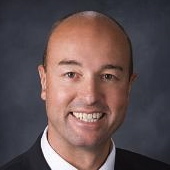4:02 p.m.: Roger Quarles says he has been in charge of the Schoolnet instructional management system pilot for only two weeks.

But the deputy state superintendent pledged to lawmakers that the state will have a workable system that allows teachers to track student growth and development — and tailor lesson plans accordingly. “I’m absolutely confident of that,” Quarles told the interim committee Tuesday afternoon, as lawmakers wrapped up their third and final day-long meeting.
Schoolnet is being piloted in about 50 school districts and charter schools across the state, and Quarles said he has heard a wide range of opinions. Some districts have had great success with the system, while others say the system isn’t working at all.
Part of the challenge now is to focus on the “end users,” Quarles said, and how a data system will affect the classroom. Part of the challenge is to get teachers too see the possibilities of the system.
“Somehow we have got to get teachers excited,” he said. “(But) I don’t want them to give it another try if it’s not going to work.”
The J.A. and Kathryn Albertson Foundation says it will release the final $4.5 million of a $21 million grant to fund the Schoolnet pilot — but the funding will only be released after the system meets “measurable benchmarks.” On Monday, the foundation made public the summary of a third-party review of the Schoolnet rollout.
Earlier, foundation executive director Jamie MacMillan offered the committee an overview of a variety of foundation initiatives — including EdTrends, a searchable data system that will be provided in concert with Idaho Education News, and the Schoolnet system.
Asked about Schoolnet — and the challenges of getting actionable information in the hands of teachers — MacMillan said data collection is still viewed as a “compliance-based exercise.” Some states are further along in the process, and more sophisticated about the use of data in the classroom.
Disclosure: Idaho Educataion News is funded through a grant from the J.A. and Kathryn Albertson Foundation.
2:33 p.m.: Representatives of three very different industries had a strikingly similar message for lawmakers: They need more access to qualified new employees.
“I think we need to raise our game, significantly,” Ken Holsinger of Kloud.com, a Treasure Valley software developer, told legislative interim committee members Tuesday afternoon.
During a panel discussion on professional-technical education, Holsinger put some numbers to the problem. The state’s education system is producing about 100 new software engineers a year, and more than half of them find work out of state. If a company such as Holsinger’s hires a group of new software engineers, the new hires will inevitably come from other local software developers. “We’re just trading employees right now, and it’s a frustrating issue.”
The frustrations aren’t limited to the software industry.
When Boise-based Tactical Solutions looks for new machinists for its firearms parts plant, the company is looking at a three- to four-month hiring process, Darin Strickler told the committee. Even finding machinists with basic skills is a challenge — and that translates to lost opportunity.
Western Trailers, a Boise semi trailer manufacturing plant, has a similar predicament. “We’ve been running our crews ragged,” Jerry Whitehead told the committee.
But part of the problem, he said, is getting students to think beyond jobs in sectors such as software, and to consider manufacturing a viable career path. “These other things are important too.”

11:30 a.m.: Sixty-three percent of Idaho’s ag education students pursue a postsecondary education — but the growing programs are “jeopardy,” state Sen. Bert Brackett, R-Rogerson, told lawmakers this morning.
Brackett was among several speakers putting in a pitch for more money for ag education programs. The cost of the request has been pegged at $2.24 million.
The money would go into several areas: classroom grants, increased per-pupil spending for ag programs, a statewide mentoring and professional development program for ag teachers, and creation of a full-time Idaho Future Farmers of America director.
Supporters say ag programs serve about 12,000 students statewide — but per-pupil spending has remained frozen since 1998, and 36 percent of the state’s ag teachers have left the program in the past two years.
When the interim committee returns from its lunch break, lawmakers will hear a longer panel discussion on professional-technical programs.
10:32 a.m.: Lawmakers heard enthusiastic testimonials this morning from two of the 30 Idaho school districts that are using Mileposts — a learning management system developed in Blaine County and marketed by Silverback Learning Solutions.
The Bonneville School District switched over to Mileposts from Schoolnet — a system that is being piloted statewide and funded by state tax dollars and a $21 million Albertson Foundation grant. Where Schoolnet provided data on a three-week to three-month delay, the Mileposts system provides teachers nearly immediate access to student data, said Scott Woolstenhulme, Bonneville’s technology services director.
“We feel like this has been a great tool for us,” Woolstenhulme said.
But the tool has a cost: nearly $55,000, or $5 for every student in the district. Schoolnet is available to districts free of charge. Originally, Bonneville used federal Title II money to pay the annual bill, Woolstenhulme said, but was told by the state that this issn’t a proper use of federal dollars. The district has since shifted state dollars into Mileposts.

While House Education Committee Chairman Reed DeMordaunt said it was exciting to hear that student data can be “actionable” in the classroom, he also voiced support for the continuing Schoolnet pilot. The Albertson Foundation has said it will fund the final installment of the Schoolnet grant, but funding will be hinged on meeting what the foundation calls “measurable benchmarks.”
“I think it’s important that we see that through,” DeMordaunt, R-Eagle, said of the Schoolnet pilot.
The State Department of Education will offer a presentation on Schoolnet later this afternoon.
9:26 a.m.: Senate Education Committee Chairman John Goedde, R-Coeur d’Alene, asked stakeholders what could be called the $80 million question: What if the state doesn’t have $80 million or so to fund the first year of rolling out task force recommendations that carry a total cost of up to $400 million? If the state can’t afford everything on the list, what’s the top priority?

Echeverria and Winslow both put in a pitch for restoring school district operational funding, which was cut by $82 million during the recession. Winslow also touted the most costly component in the recommendations: a $253 million teacher salary ladder. Robin Nettinga of the Idaho Education Association suggested the stakeholders would need to regroup, if funding is tight.
9:21 a.m.: Discussing the technology pilot program — which is funding $3 million in experiments in 11 schools — Rob Winslow of the Idaho Association of School Administrators is putting in a pitch for money, and flexibility to spend on infrastructure or devices. “Every district’s in a different place.”
9:10 a.m.: It’s time for a quick attendance update. Nine of the 10 interim committee members are here for this morning’s meeting. Absent is Sen. Branden Durst, D-Boise, who has come under some scrutiny because he is splitting his time between Boise and the Seattle area, where his wife is working as a teacher and his family now lives. There’s no name tag for Durst at the dais.
Durst attended the first two interim committee meetings — but during the Oct. 2 hearing, he took to Twitter to complain that the hearings and presentations seemed to be a waste of time. He also didn’t care for the fact that we pointed out he showed up late for the hearing. Here’s some backstory from my Oct. 2 blog.
9:00 a.m.: Up now is Karen Echeverria of the Idaho School Boards Association. Speaking on behalf of two other stakeholder groups, the Idaho Education Association and the Idaho Association of School Administrators, Echeverria is urging lawmakers to support the 20 recommendations from Gov. Butch Otter’s education reform task force. She says the recommendations should be considered in full, and not treated as a “menu” of options. “We support the recommendations as a package.”

8:51 a.m.: First speaker at the interim committee: Idaho Leads project director Lisa Kinnaman. She is providing lawmakers a presentation on Clarity, a student data analysis system that will be used by 64 of the 66 school districts and charter schools involved in the Leads project. (Here’s a link to a background piece on the Clarity project.)
She is also presenting an overview on EdTrends, a new education database that will be rolled out in concert with Idaho Education News. The site will be operational by January, Kinnaman said, and will aggregate data that is already publicly available, largely from the State Department of Education.
(Disclosure: Idaho Education News is housed under the Idaho Leads project at Boise State University. Idaho Leads and Idaho Education News, and the EdTrends project, are funded through grants from the J.A. and Kathryn Albertson Foundation.)
8:38 a.m.: Welcome to the K-12 legislative interim committee live blog. Here’s a link to our preview piece, and a link to the meeting agenda.
